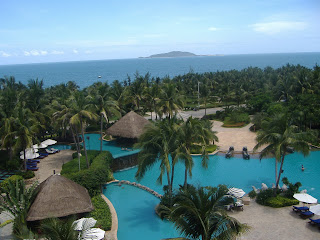 Now this might seem like a risky strategy but...
Now this might seem like a risky strategy but...It's time to go for broke if the Irish political class really wants to pass the Lisbon Treaty.
There is understandable discomfort with being asked to vote on the same thing twice (even though we did it for Nice and divorce and abortion).
So let's put two separate questions on the ballot next October.
Question 1: Ireland should ratify the Lisbon Treaty [Yes] [No]
Question 2: Ireland should withdraw from the European Union [Yes] [No]
This will focus minds on whether we really want to be in the EU and steer the debate towards the value of Europe to Ireland.
Even the anti-Lisbon groups who say they are pro-Europe (Sinn Fein, Libertas and some Green-tinged independents) will have to acknowledge that Europe has been great for Ireland. They will spend the debate trying to explain the apparent inconsistency in asking for a No vote on Q1 and a Yes vote on Q2.
The Yes side will have an easier ride because they'll be able to spend time pointing out what happened to Iceland over the past 12 months (it could have been us) and note that Sweden and Denmark are considering Euro membership in the interest of stabilizing their currency.
The number of genuinely anti-Europe people in Ireland is small. Farmers, trade unions, and probably the Church, will rally around Ireland committing to the EU and Q1 would pass by 70% while Q2 gets around 90%.
There are risks, of course. The first being that people will say the Government is trying to be too cute and that it's insulting to try to marry rejecting Lisbon to all-out withdrawal. But given how disingenuous some of the No campaigners were last time ("It'll legalize cocaine, prostitution and abortion") it's clear you can't expect every citizen to read and digest the whole document.
Oh and the other risk...well, we could find ourselves having to ask Brussels to leave the European Union at the end of October 2009.
But fear not - there is currently no legal provision for member states exiting the EU! The Reform Treaty (or 'Lisbon Treaty' to give it its common name) does contain such a clause. So if the only way we could actually have to walk away would be if we passed Lisbon but voted to withdraw...










































